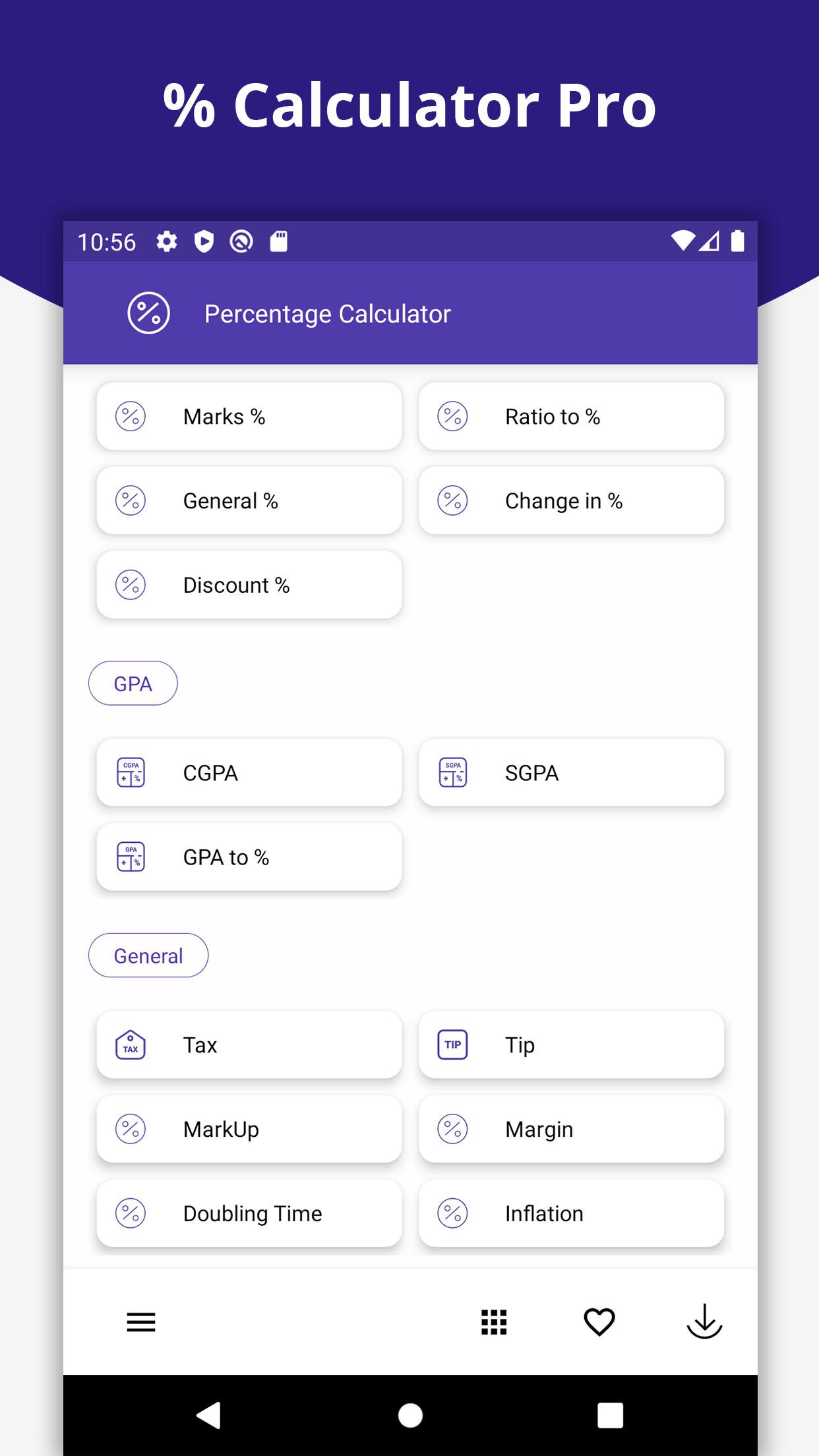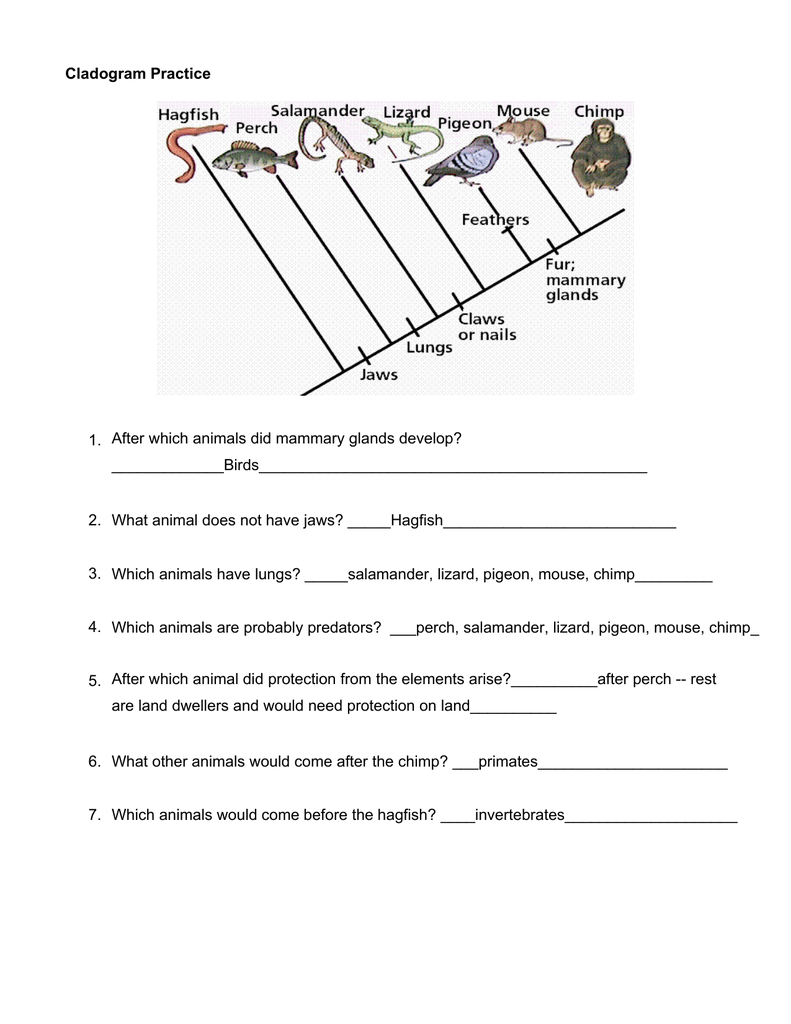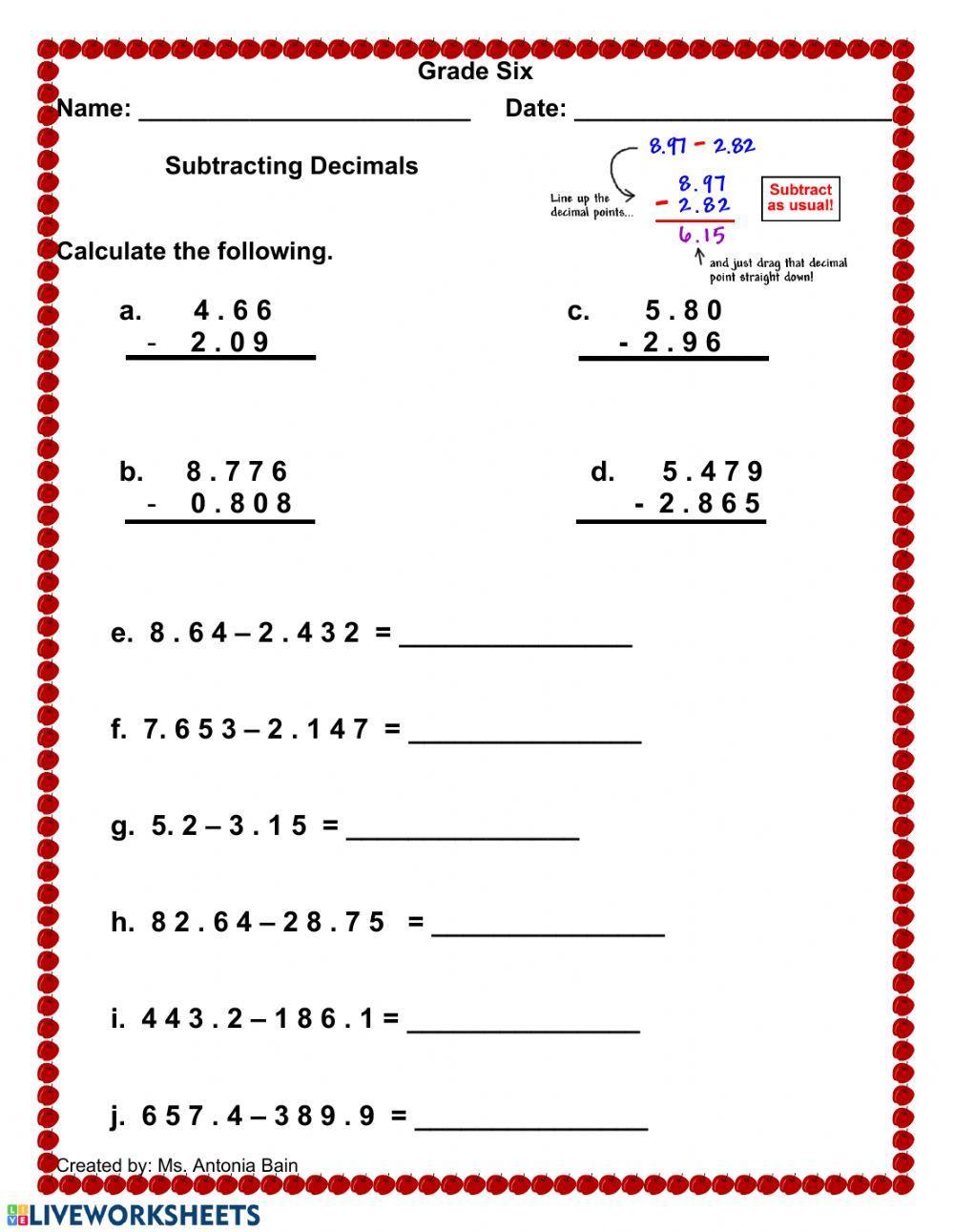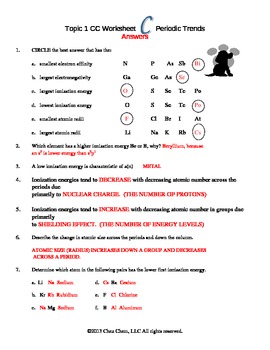7 Conflict Resolution Worksheets to Try Today
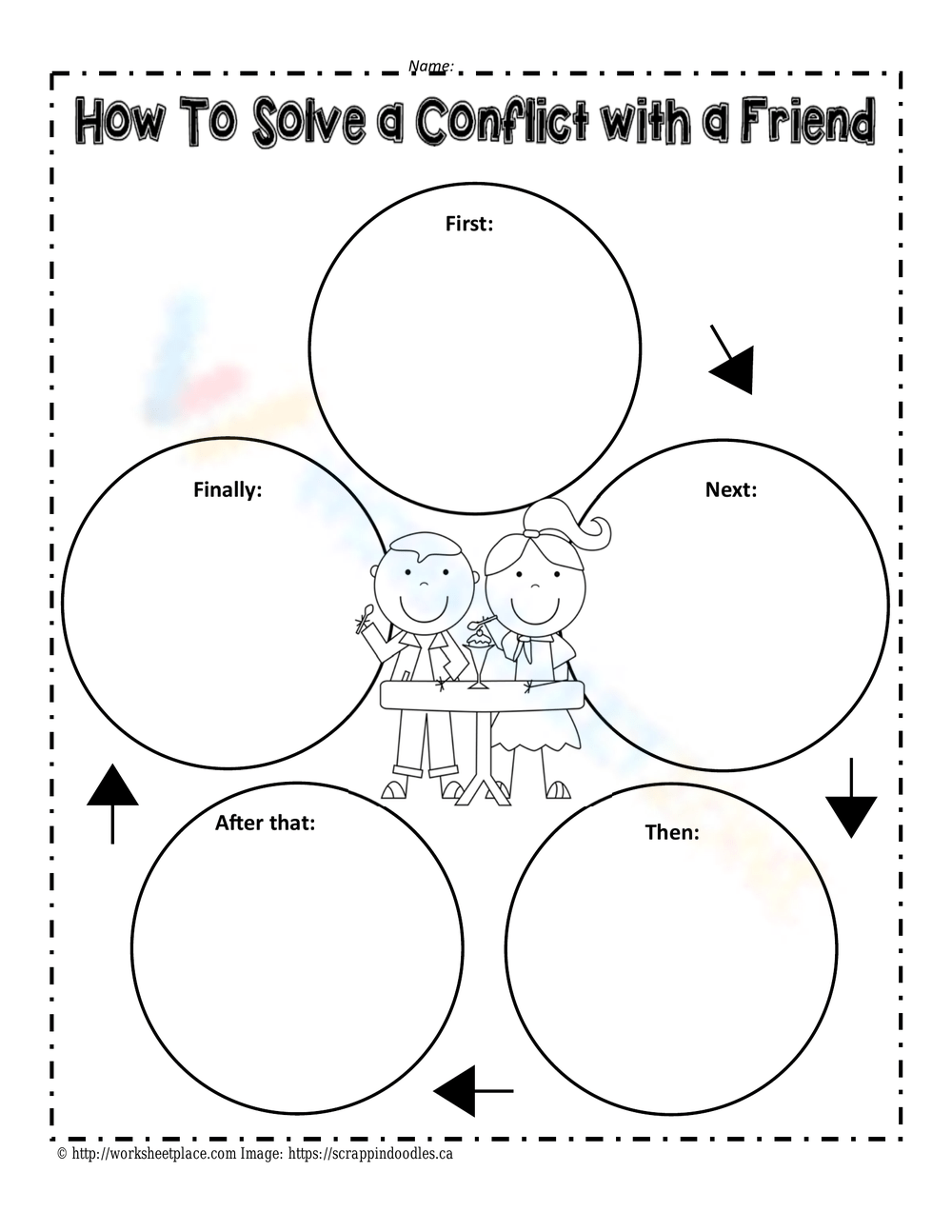
Understanding Conflict Resolution and the Importance of Worksheets
Conflict resolution is an essential skill that we all need to navigate our personal and professional lives successfully. It involves identifying, addressing, and resolving disputes in a way that satisfies all parties involved. One effective way to develop this skill is by using conflict resolution worksheets. These worksheets provide a structured approach to analyzing conflicts, identifying potential solutions, and developing effective communication strategies.
In this article, we will explore seven conflict resolution worksheets that you can try today. These worksheets are designed to help you develop the skills you need to resolve conflicts in a constructive and respectful manner.
Worksheet 1: Identifying Conflict Triggers
Before we can resolve conflicts, we need to understand what triggers them. This worksheet helps you identify the common triggers that lead to conflicts in your life.
- Step 1: Write down the conflicts you have experienced in the past few weeks or months.
- Step 2: Identify the triggers that led to each conflict. Was it a misunderstanding, a difference in opinion, or something else?
- Step 3: Analyze the triggers and look for patterns. Are there any common themes or triggers that keep recurring?
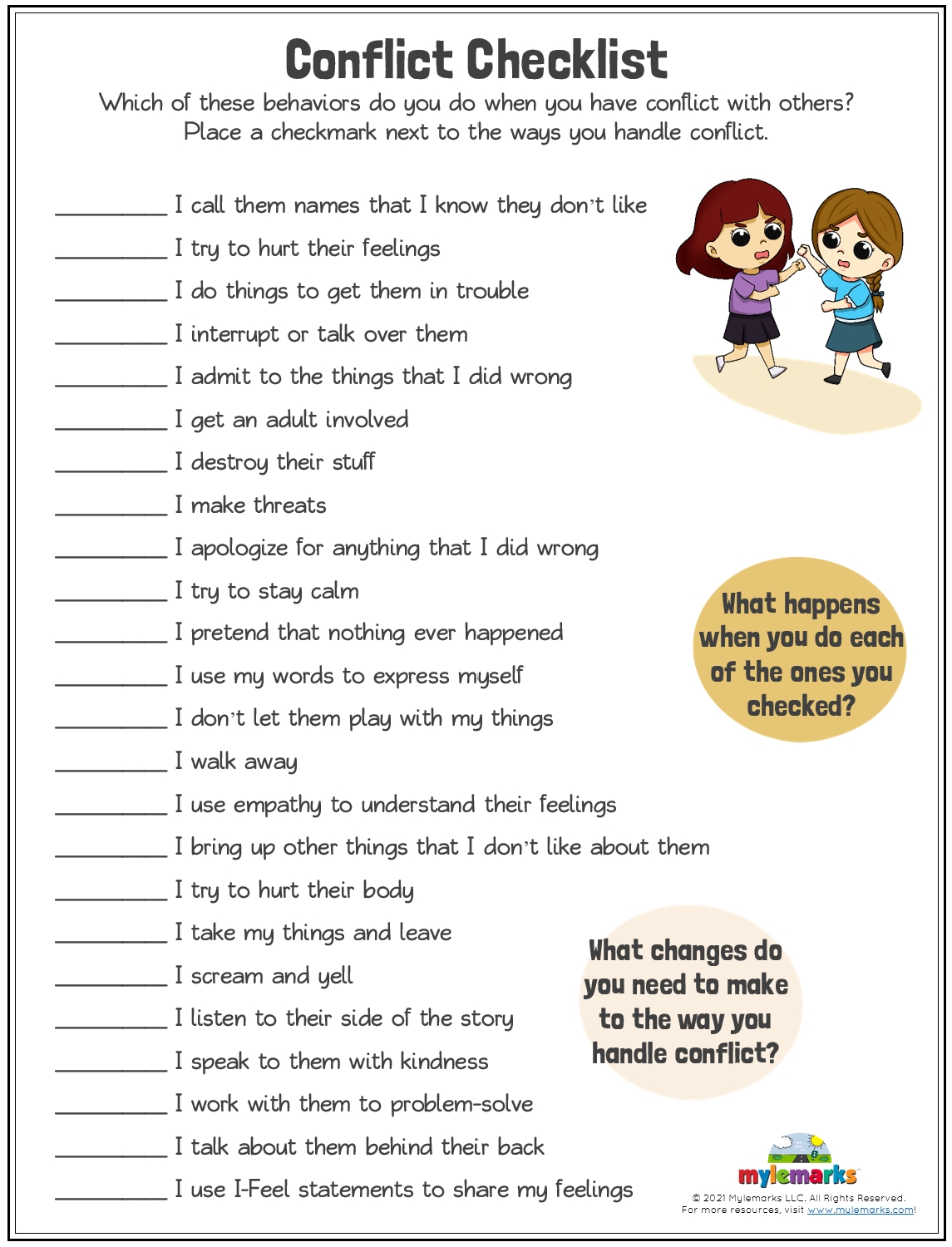
| Conflict | Trigger |
|---|---|
| Argument with colleague | Difference in opinion |
| Fight with partner | Miscommunication |
| Dispute with neighbor | Noise complaint |
🔍 Note: Identifying conflict triggers is the first step in developing effective conflict resolution strategies.
Worksheet 2: Understanding Conflict Styles
We all have different conflict styles, and understanding yours can help you navigate conflicts more effectively. This worksheet helps you identify your conflict style and develop strategies for improvement.
- Step 1: Read the following conflict styles and identify which one best describes you:
- Avoider: You tend to avoid conflicts whenever possible.
- Competitor: You see conflicts as a competition that you need to win.
- Collaborator: You try to find a solution that satisfies everyone.
- Compromiser: You look for a middle ground that works for everyone.
- Step 2: Analyze your conflict style and identify its strengths and weaknesses.
- Step 3: Develop strategies for improving your conflict style.
| Conflict Style | Strengths | Weaknesses |
|---|---|---|
| Avoider | Avoids conflict escalation | May avoid important issues |
| Competitor | Assertive and direct | May damage relationships |
| Collaborator | Finds creative solutions | May take too long to resolve |
| Compromiser | Finds middle ground | May sacrifice own needs |
💡 Note: Understanding your conflict style can help you develop more effective conflict resolution strategies.
Worksheet 3: Active Listening
Active listening is an essential skill for conflict resolution. This worksheet helps you practice active listening and develop more effective communication strategies.
- Step 1: Write down a recent conflict you experienced.
- Step 2: Identify the key issues and concerns that were raised during the conflict.
- Step 3: Practice active listening by paraphrasing and reflecting the other person’s concerns.
| Conflict | Key Issues | Paraphrased Concerns |
|---|---|---|
| Argument with colleague | Difference in opinion | “I understand that you feel strongly about this issue.” |
| Fight with partner | Miscommunication | “I hear that you felt hurt by my words.” |
🗣️ Note: Active listening is essential for resolving conflicts and building stronger relationships.
Worksheet 4: Identifying Needs and Interests
Understanding the needs and interests of all parties involved is crucial for resolving conflicts. This worksheet helps you identify the underlying needs and interests that drive conflicts.
- Step 1: Write down a recent conflict you experienced.
- Step 2: Identify the needs and interests of all parties involved.
- Step 3: Analyze the needs and interests and look for common ground.
| Conflict | Needs and Interests |
|---|---|
| Argument with colleague | Need for respect, interest in finding a solution |
| Fight with partner | Need for love and affection, interest in resolving the issue |
💡 Note: Understanding the needs and interests of all parties involved can help you find creative solutions to conflicts.
Worksheet 5: Developing "I" Statements
Using “I” statements can help you express your feelings and concerns more effectively in conflicts. This worksheet helps you practice using “I” statements.
- Step 1: Write down a recent conflict you experienced.
- Step 2: Identify the feelings and concerns you expressed during the conflict.
- Step 3: Practice using “I” statements to express your feelings and concerns.
| Conflict | Feelings and Concerns | “I” Statements |
|---|---|---|
| Argument with colleague | Frustration, concern about the project | “I feel frustrated when I don’t understand the project goals.” |
| Fight with partner | Hurt, concern about the relationship | “I feel hurt when you don’t listen to me.” |
💬 Note: Using "I" statements can help you express yourself more effectively in conflicts.
Worksheet 6: Finding Common Ground
Finding common ground is essential for resolving conflicts. This worksheet helps you identify areas of agreement and develop strategies for finding common ground.
- Step 1: Write down a recent conflict you experienced.
- Step 2: Identify the areas of agreement and common goals.
- Step 3: Develop strategies for finding common ground.
| Conflict | Areas of Agreement | Common Goals |
|---|---|---|
| Argument with colleague | Shared goal of completing the project | Find a solution that works for everyone |
| Fight with partner | Shared goal of maintaining the relationship | Find a compromise that satisfies both parties |
🌈 Note: Finding common ground can help you resolve conflicts more effectively and build stronger relationships.
Worksheet 7: Creating a Conflict Resolution Plan
Having a conflict resolution plan can help you navigate conflicts more effectively. This worksheet helps you create a plan for resolving conflicts in a constructive and respectful manner.
- Step 1: Write down a recent conflict you experienced.
- Step 2: Identify the strategies you used to resolve the conflict.
- Step 3: Develop a plan for resolving future conflicts.
| Conflict | Strategies Used | Conflict Resolution Plan |
|---|---|---|
| Argument with colleague | Active listening, finding common ground | Use active listening and find common ground to resolve conflicts |
| Fight with partner | Using “I” statements, compromise | Use “I” statements and find a compromise to resolve conflicts |
📝 Note: Having a conflict resolution plan can help you navigate conflicts more effectively and build stronger relationships.
These seven conflict resolution worksheets can help you develop the skills you need to resolve conflicts in a constructive and respectful manner. Remember to practice active listening, identify needs and interests, and find common ground to resolve conflicts more effectively.
By using these worksheets, you can improve your conflict resolution skills and build stronger relationships in your personal and professional life.
What is conflict resolution?
+Conflict resolution is the process of resolving disputes or conflicts in a way that satisfies all parties involved. It involves identifying the issues, analyzing the needs and interests of all parties, and finding a solution that works for everyone.
Why is conflict resolution important?
+Conflict resolution is important because it helps to build stronger relationships, improve communication, and find creative solutions to problems. It can also help to reduce stress, improve productivity, and increase job satisfaction.
How can I improve my conflict resolution skills?
+You can improve your conflict resolution skills by practicing active listening, identifying needs and interests, and finding common ground. You can also use conflict resolution worksheets to develop your skills and build stronger relationships.
Related Terms:
- Conflict Resolution Worksheet PDF
- Free printable conflict resolution worksheets
- Conflict resolution worksheet for adults
- Workplace conflict resolution worksheets
- Couples Conflict resolution worksheet PDF
- Conflict resolution Worksheet for kids
